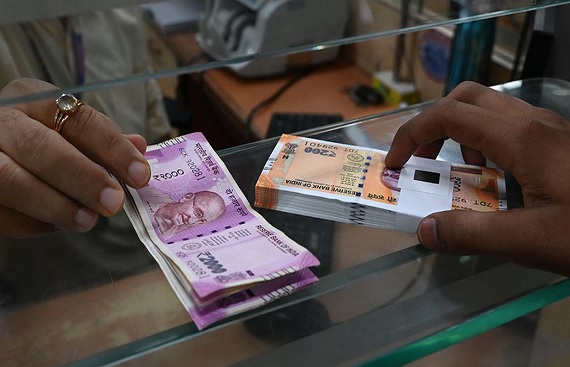HC Orders RBI to Accept Demonetised Notes Following Procedural Delay
By
siliconindia | Monday, 10 March 2025, 22:34 Hrs

In a first, the Bombay High Court has ordered the Reserve Bank of India (RBI) to accept and exchange demonetised money of Rs 20 lakh from a set of Kolhapur residents, whose funds were confiscated during an income tax raid barely a week before the deadline for deposit in 2016.
The case is about the unexpected demonetisation policy of the government in November 2016, declaring Rs 500 and Rs 1000 banknotes to be invalid. The people were told to deposit the notes to their bank accounts by December 31, 2016. When the petitioners, having chosen to deposit the collective amount, were raided on December 26 by the income tax department, their cash was seized.
Following the completion of the probe, the income tax department on January 10, 2017, notified the police that they would not keep the seized money and deposited the amount with the petitioners on January 17, 2017. When the petitioners went to RBI to deposit the money, the bank refused, saying the deadline had expired.
The group, led by advocate Udaya Sankar Samudrala, approached the court against this order, claiming they could not be penalized for something that was beyond their control. They argued that as the money was in the hands of government officials during the deposit period, they could not be blamed for failing to meet the deadline.
RBI’s counsel, senior advocate Venkatesh Dhond, referred to the Specified Bank Notes (Cessation of Liabilities) Act, 2017, and a May 2017 finance ministry notification. He argued that the petitioners were required to submit the serial numbers of the demonetised notes to exchange them for legal tender. Since the petitioners couldn’t provide these details, RBI claimed it was legally barred from accepting the notes.
Nevertheless, the petitioners' lawyer added that the task of documenting the serial numbers rested with the tax and police officials who received the seized money, and their negligence in doing so imposed undue hardship on the petitioners.
On February 27, a division bench of Justice A.S. Chandurkar and Justice M.M. Sathaye ruled in the favor of the petitioners, declaring they were not to blame. The court asserted that the petitioners did not have the cash at hand during the period of deposit, and denying them the exchange value would be unfair.
We do not see any reason to deny the petitioners the benefit of receiving the value of the said bank notes, the bench ruled. It directed the petitioners to deposit the amount with RBI within a week and asked the central bank to authenticate the notes and exchange them for legal tender.
The judgment is a major precedent in finding a balance between procedural compliance and equity, with an assurance that citizens are not disproportionately penalized for procedural failures by state agencies. The judgment reiterates the judiciary's role in protecting public interest even years after the disruptive effect of demonetisation.
